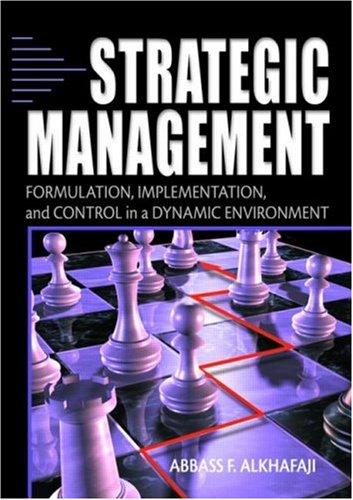Question
1. The economic system that allows individuals the least degree of economic freedom is ________. a. planned b. capitalism c. mixed capitalism d. free-market 2.
1. The economic system that allows individuals the least degree of economic freedom is ________.
a. planned
b. capitalism
c. mixed capitalism
d. free-market 2. Danes generally are not afraid of taking chances; they are comfortable doing things that are not carefully thought out or planned. Denmark's "flexicurity" policy combines free labor markets with adjustable welfare benefits. This is an example of the application of Hofstede's typology under the values which highlight:
a. Uncertainty Avoidance.
b. Power Distance.
c. Individualism/Collectivism.
d. Future Orientation.
3. According to Hofstede, which of the following is a characteristic of a society with high uncertainty avoidance?
a. People typically show more emotions during social interactions.
b. People show greater diversity in opinions and behavior.
c. People are highly innovative and entrepreneurial.
d. People are more contemplative and tolerant of unorthodox ideas. 4. Which of the following is an example of importing a service?
A. a Canadian purchases a ticket to see a performance by a Spanish singer
B. a Canadian lawyer goes to California to work on a litigation case
C. a Canadian engineer designs a bridge to be built in Australia
D. an accountant does financial statements for a Mexican company 5. Which of the following is the broadest indicator of international trade and shows how much is spent on international transactions?
Group of answer choices
a. Balance of payments
b. Economies of scale
c. Trade surplus
d. Balance of trade 6. Describe as many types of tariffs and non- tariff barriers (NTBs) that are imposed on products and the reasons for their use. Examples are useful. 7. An important (additional) consideration for a direct foreign investment is
Group of answer choices
a. political risk.
b. maximizing the firm's profits.
c. maintaining the domestic cost of capital.
d. attaining a high international P/E ratio.
8. The OLI paradigm is an attempt to create a framework to explain why MNEs choose ________ rather than some other form of international venture.
a. foreign direct investment
b. licensing
c. strategic alliances
d. joint ventures 9. A/An ________ would be an example of a location-specific advantage for an MNE.
a. unique source of raw materials
b. economy of scale
c. patent
d. possession of proprietary information 10. The I in OLI refers to an advantage in a firm's home market that is an:
a. internalization.
b. internationalization
c. industry-specific advantage.
d. international abnormality.
Step by Step Solution
There are 3 Steps involved in it
Step: 1

Get Instant Access to Expert-Tailored Solutions
See step-by-step solutions with expert insights and AI powered tools for academic success
Step: 2

Step: 3

Ace Your Homework with AI
Get the answers you need in no time with our AI-driven, step-by-step assistance
Get Started


